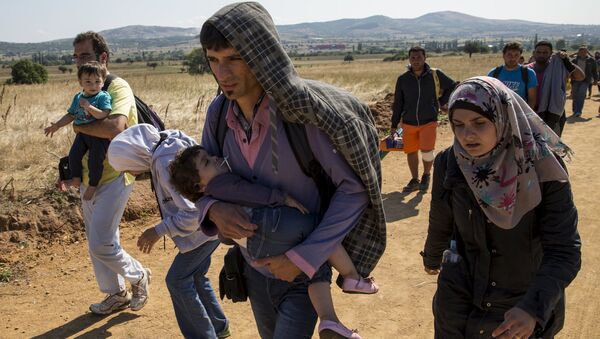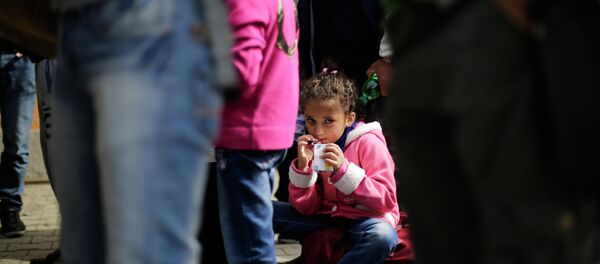While the plan may seem good on paper, it begs the question — if some EU members don't want to accept refugees, would cutting them off from the aid funds make them reconsider their decision and wouldn't everyone be better off if the money would be spent directly to help refugees without complicated bureaucratic schemes?
All the red tape process involving the transfer of the aid funds might lead to a situation where refugees, the very subject of the intended help, will end up at the bottom of the ladder.
"Countries that resist quotas — nothing happens to them. The refugees just pass on through and that is why we have to talk about consequences. These are often countries that receive lots of structural aid from the EU Jean-Claude Juncker suggested — and I think he is absolutely right — that they should get less aid from the structural aid fund," Germany's Interior Minister Thomas de Maiziere commented on how he sees the situation can be improved.
Now if there is the aid fund, which has to be spent to take care of the refugee crisis, then wouldn't it be better to give the money to humanitarian agencies that work with refugees on the ground, especially since many NGOs and UN humanitarian agencies face financial constraints?
To hold on to the money from the aid fund hoping to force Hungary and the Czech Republic to accept more asylum-seekers won't help refugees, who are stranded in Eastern Europe and need help now. There is no need to overcomplicate things with puzzling bureaucratic schemes, especially since the money is out there and it could be used directly to help those in need.
German Chancellor Angela Merkel and her Austrian counterpart Werner Faymann called for a Europe-wide meeting trying to solve the ongoing refugee crisis.
"It is a problem for the entire European Union and therefore we argued for a special EU summit to be held next week," Merkel said.
Europe is currently struggling with what is being called the worst refugee crisis since World War II. President of the European Commission Jean-Claude Juncker said earlier this month that nearly half a million migrants and asylum seekers were estimated to have entered Europe since the beginning of the year.



